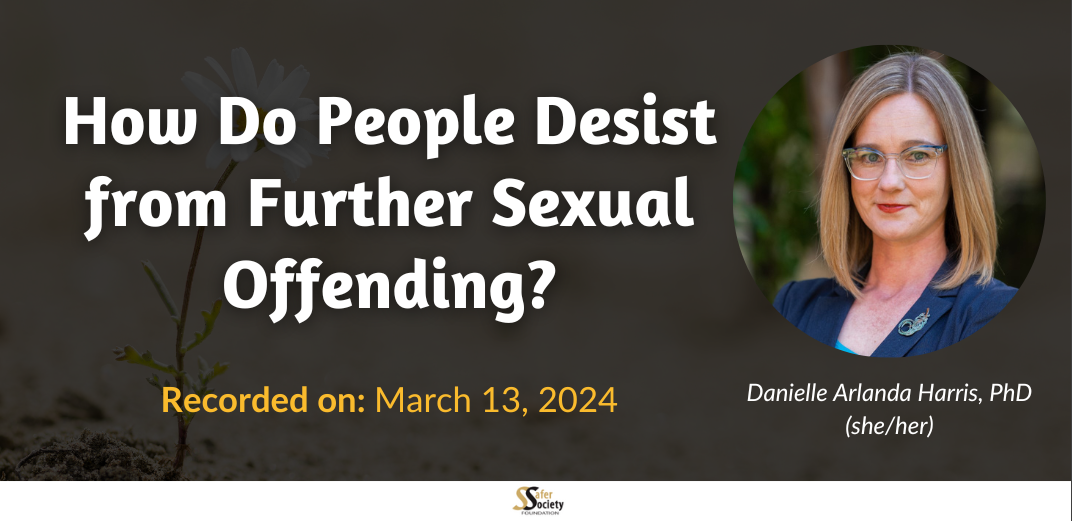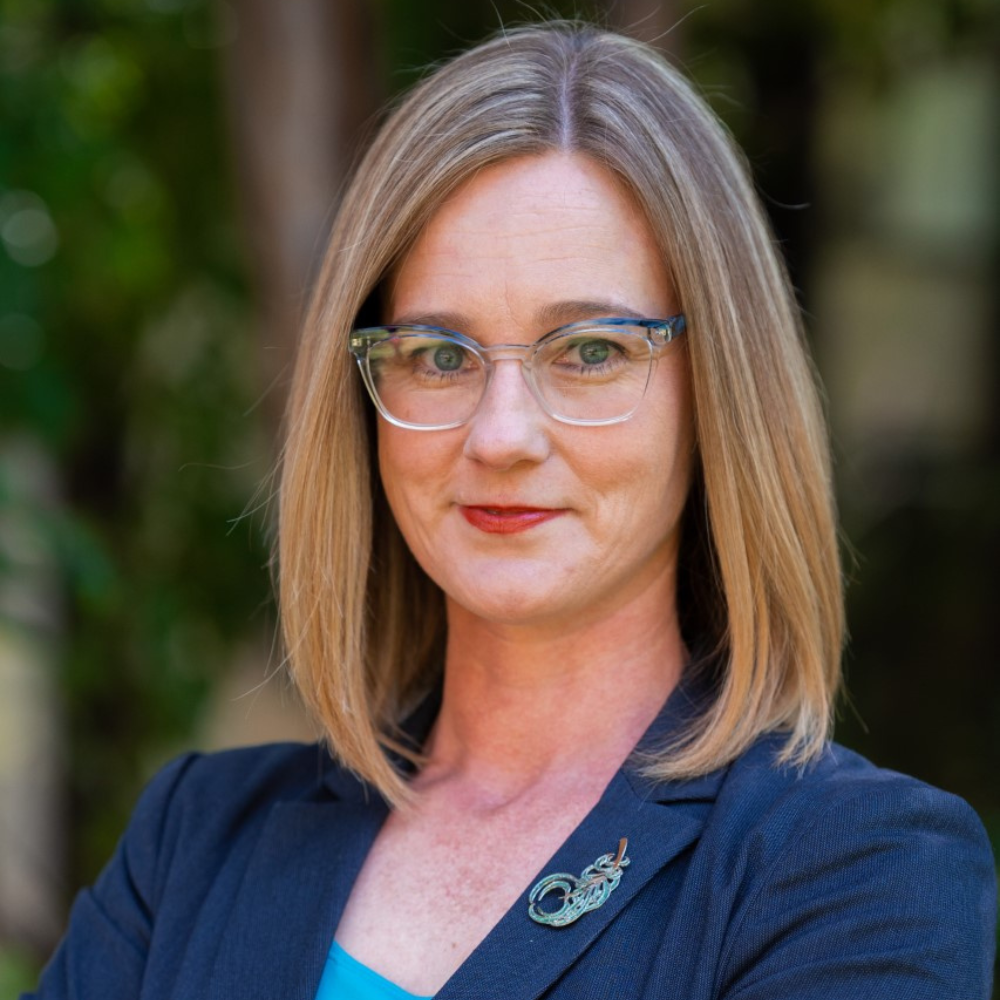
How Do People Desist from Further Sexual Offending?
This webinar is for professionals and researchers in the fields of criminology, psychology, and criminal justice. It is also relevant to those involved in the rehabilitation and reintegration of individuals who have committed sexual offenses.
Australian researcher Danielle Harris has spent her career studying desistance.
In this webinar, Dr. Harris presents her work on understanding the pathways to desistance taken by sexual offenders after they are released from incarceration. She begins by drawing upon more than two decades of primary research to reflect on our changing perceptions of sexual offending across the life course.

The discussion then moves on to the three main strategies of desistance that emerged in the interviews Dr. Harris conducted with men convicted of sexual crimes:
- Retirement: the strategy of those who resign from offending and rebuild their lives
- Regulation: the strategy of developing skills (with varying success) for living within the restrictions of their post-incarceration lives
- Recovery: Essentially, the strategy of becoming a new and more resilient person.
Dr. Harris uses thematic narrative inquiry to explore various narratives of desistance. These “desistance scripts” can help treatment providers move beyond the tenacious language of risk and recidivism by using the scripts to encourage clients to pursue a desistance strategy. Dr Harris’ work focuses squarely on prevention, desistance, and wellbeing.
Who's Presenting

Danielle Arlanda Harris, PhD (she/her)
Danielle Arlanda Harris, PhD is an Associate Professor in the School of Criminology and Criminal Justice at Griffith University and the Deputy Director-Research of the Griffith Youth Forensic Service. She has lived and worked in the US, the UK, and Australia in the area of research, treatment, and prevention of child sexual abuse. She began working for the Lucy Faithfull Foundation (UK) at a residential facility for men convicted of sexual offenses. For the next 15 years she worked in Maryland, Maine, Washington, Massachusetts, and California interviewing men who had been referred for civil commitment. She has collaborated with the Massachusetts Department of Corrections, the Massachusetts Treatment Center for Sexually Dangerous Persons, and the California Sex Offender Management Board. She has testified as an expert witness in several trials for Santa Clara County (CA) and King County (WA). She has attracted more than one million dollars in research funding, including from Westpac Bank (Australia), The National Centre for Action on Child Sexual Abuse (Australia) and a prestigious grant from the Guggenheim Foundation. Since returning to Australia, she has continued her research and regularly consults with the Daniel Morcombe Foundation, Queensland Police Service, Queensland Corrections, NSW Corrections, and the Men’s Project (Jesuit Social Services). She has published over 30 peer reviewed journal articles and book chapters and has given more than 50 presentations at international conferences. Her first book (Desistance from Sexual Offending) received the Australia and New Zealand Society of Criminology Book award.
